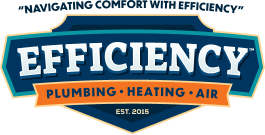Humidity is the amount of moisture vapor in the air. Relative humidity is humidity relative to temperature. Warmer air can hold more moisture, and cooler air can hold less. The EPA recommends maintaining an RH between 30% and 50% throughout the year in your Hanover, MA, home. This can be easier said than done because there are a wide range of factors that influence indoor humidity.
1. Current Season
The current time of year plays an important role when it comes to the humidity in your home. The air is naturally more humid in spring and summer in Hanover because the temperature is higher. The air is naturally drier in the fall and winter because the temperature is lower.
2. Loose Building Envelope
A building envelope is the physical separator between a conditioned environment and an unconditioned environment. In terms of your house, this includes the roof, insulation, siding, windows, doors, foundation, etc. If ventilation is adequate, a tight seal is ideal for comfort and energy efficiency. If your home has a loose seal, you’re more prone to humidity fluctuations due to outdoor conditions.
3. Occupancy
People add significant moisture to the air through exhalation. That means that a higher resident count results in more humidity naturally. The overall size of the home is a factor here as well. A 2,000-square foot home without some form of humidity control will be more humid with eight residents than with four.
4. Heating and Cooling
A common misconception is that heating your home results in dry indoor air. It may feel dry, but this isn’t what’s happening. What is happening is an inadequate airflow cycle. The system is continuously drawing in the cold winter air but never replenishing the moisture. The warm air provided by a heat pump tends to be naturally more humid. That’s why the effect isn’t as bad with heat pumps.
5. Poor Ventilation
Poor ventilation doesn’t influence humidity directly, but it can exacerbate humidity problems. Poor ventilation is common in modern homes that have a tight seal but only passive ventilation in the attic. The main way to solve this problem is through a whole-house ventilation fan. It will add a steady flow of fresh air to the home. An energy recovery ventilator is an advanced fan that can also add moisture to the air in winter.
6. Humidifiers and Dehumidifiers
Running a humidifier or dehumidifier will greatly affect the humidity in a home. A dehumidifier is a device that lowers RH. It does this through either a refrigeration cycle, not unlike an AC, or by passing air over a desiccant. The desiccant absorbs moisture from the air. A humidifier helps to increase RH, and it does this by adding moisture to the air.
7. Kitchens and Bathrooms
Kitchens, bathrooms, and laundry rooms can add a significant amount of moisture to a home. The effect can be particularly notable in a smaller home where humidity is more easily influenced. Cooking creates a lot of moisture. You should run your range exhaust as soon as you start prepping and until 10 minutes after you finish cooking. In your bathroom, run your exhaust during showers and baths. Keep the exhaust running until all the moisture is gone. In the laundry room, ensure that the dryer is properly vented.
8. Basements and Crawl Spaces
Houses with basements and crawl spaces may be prone to the stack effect. This is where, through convection, humid air enters the home from below. In many cases, adding crawl space or basement insulation may prevent the stack effect.
9. Clogged Gutters
Gutters clogged with leaves and other debris can collect significant moisture. That increases humidity near the home. It can enter the home through both mechanical ventilation and intentional and unintentional natural ventilation.
10. Leaks
Any type of leak within your home is going to lead to higher humidity. Even a relatively small leak in your roof can increase humidity and, of course, cause serious water damage over time. This is why you should check your attic monthly. Schedule a roof inspection annually and after any severe storm that may have damaged it. You should also be on the lookout for leaking plumbing, which can have a similar effect on humidity.
11. Condensation
Moisture can pass from the outside into your home through the process of condensation. This is common in homes in winter when the warm inside air meets the cold window glass. You can also experience condensation with a water heater or boiler. Some condensation may be typical, but it can suggest an issue with insulation or even a bigger problem.
Humidity Control Expertise in Hanover
If you would like to achieve better humidity control in your home, Efficiency Plumbing, Heating & Air can help. We offer our services in Hanover and throughout the South Shore area. We specialize in dehumidifiers, humidifiers, ventilation, and air purifiers. Our HVAC technicians are experts with ductless mini-splits and ducted furnaces, heat pumps, and air conditioners.
Contact us today to book an appointment or to learn more about these indoor air quality services.



